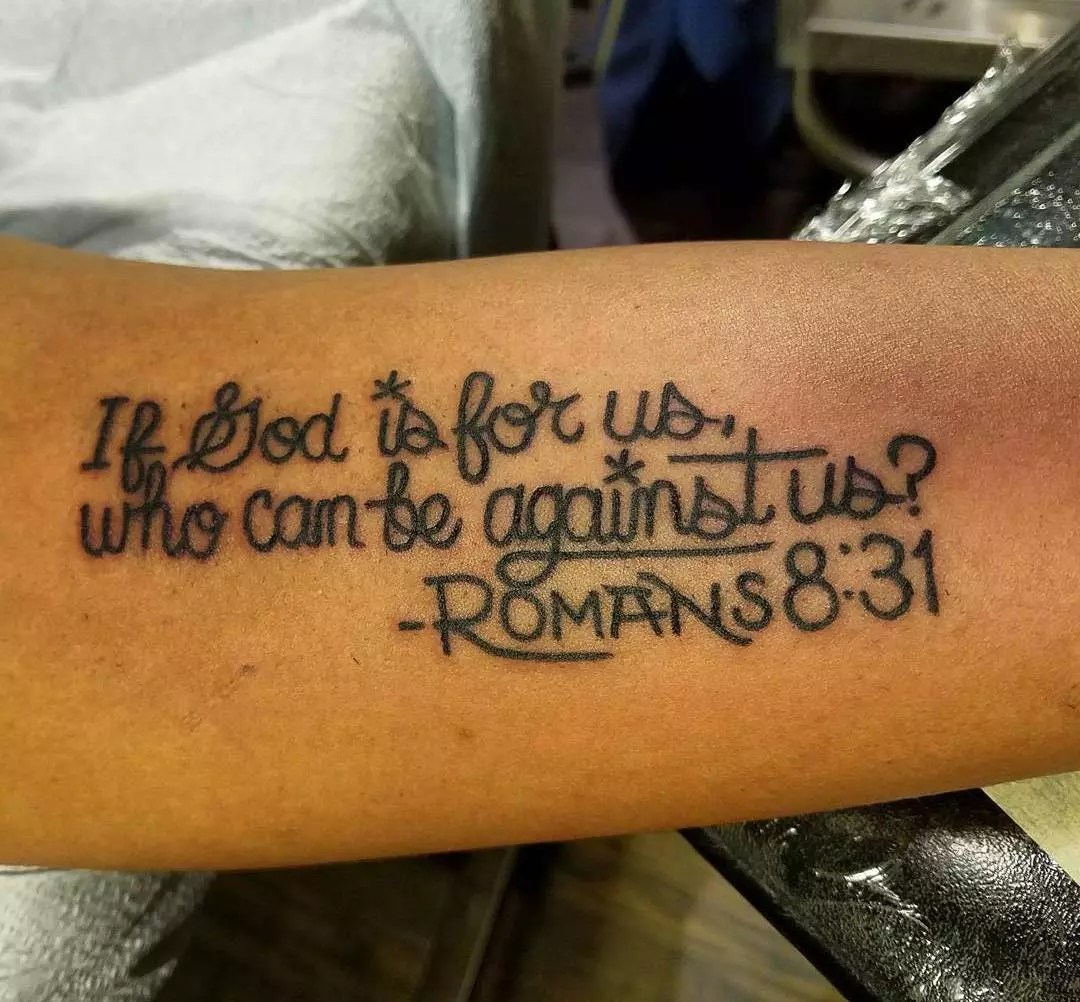The topic of tattoos often stirs debate among various communities, particularly among people of faith. Many individuals ponder whether getting a tattoo aligns with their beliefs or contradicts biblical teachings. The question remains: what do the Scriptures really say about tattoos? In this article, we will delve into specific Bible verses about tattoos, explore their meanings, and offer a thoughtful perspective on this form of self-expression.
The Bible, a revered text for millions, provides guidance on numerous aspects of life, including the body and how we adorn it. It is essential to understand the context and interpretations of the passages that reference tattoos and body markings. By examining these verses, we can gain insight into how they relate to the modern practice of tattooing and what principles might guide believers in their decisions regarding body art.
As we explore the intricate relationship between the Bible and tattoos, we will address common questions that arise. Does scripture explicitly condemn tattoos? Are there any verses that support the idea of body art? Through an engaging examination of biblical verses, we aim to clarify these concerns and provide a balanced view on the topic of tattoos in light of Christian faith.
What Does the Bible Say About Tattoos?
One of the most frequently cited verses regarding tattoos is Leviticus 19:28, which states, "You shall not make any cuts on your body for the dead or tattoo yourselves: I am the Lord." This verse has led many to conclude that tattoos are forbidden in the Christian faith. However, it is crucial to recognize that this scripture was originally addressed to the Israelites, outlining practices that were common in surrounding pagan cultures.
Are There Different Interpretations of This Verse?
Indeed, interpretations of Leviticus 19:28 can vary significantly. Some theologians argue that this prohibition was specific to a certain cultural context, where tattoos were often associated with mourning rituals or pagan practices. Others believe that the underlying principle of the verse is to honor one’s body as a temple of the Holy Spirit, which could support the idea of tattoos as long as they reflect positive intentions.
Is There Any Positive Reference to Body Art in the Bible?
While the Bible does not explicitly mention tattoos in a positive light, it does recognize body adornment. For instance, Song of Solomon 4:9 says, "You have captivated my heart, my sister, my bride; you have captivated my heart with one glance of your eyes, with one jewel of your necklace." This verse illustrates that beauty and adornment can be celebrated within a biblical context, suggesting that body art may also have a place.
What Are Some Modern Perspectives on Tattoos?
In contemporary society, tattoos have evolved into a popular form of self-expression, often representing personal stories, beliefs, or milestones. Many believers today view tattoos as a way to share their faith and personal journey rather than contradicting their beliefs. This shift in perspective invites a broader discussion about the role of tattoos in a Christian’s life.
Can Tattoos Serve as a Testament of Faith?
Absolutely. Many individuals choose tattoos that symbolize their faith or commemorate significant spiritual experiences. For example, some may get tattoos of Bible verses, crosses, or other Christian symbols. In this sense, tattoos can serve as a visible testament of belief and a conversation starter about one’s faith journey.
What Should Be Considered Before Getting a Tattoo?
Before deciding to get a tattoo, there are several factors to consider:
- Intention: Reflect on the meaning behind the tattoo and what it represents in your life.
- Design: Choose a design that aligns with your values and beliefs.
- Placement: Consider the visibility of the tattoo and how it may affect your professional and personal life.
- Consultation: Discuss your decision with trusted mentors or spiritual leaders for guidance.
What Are Some Bible Verses About Tattoos That Can Guide Decisions?
While there are limited verses that directly address tattoos, other scriptures can provide valuable insights on how to approach body art. Here are a few verses that may be relevant:
- 1 Corinthians 6:19-20: "Or do you not know that your body is a temple of the Holy Spirit within you, whom you have from God? You are not your own, for you were bought with a price. So glorify God in your body."
- Galatians 5:13: "For you were called to freedom, brothers. Only do not use your freedom as an opportunity for the flesh, but through love serve one another."
- Colossians 3:17: "And whatever you do, in word or deed, do everything in the name of the Lord Jesus, giving thanks to God the Father through him."
How Can Believers Approach the Tattoo Debate?
Believers should engage in thoughtful dialogue about tattoos, recognizing that each person's convictions may differ. It is essential to approach the topic with love and respect, understanding that everyone is on their own spiritual journey. Ultimately, decisions regarding tattoos should be made based on personal conviction, biblical understanding, and guidance from the Holy Spirit.
Conclusion: How Do Bible Verses About Tattoos Influence Our Choices?
In conclusion, the conversation surrounding tattoos and biblical teachings is multifaceted. While specific verses may seem to discourage tattoos, many believers find freedom in expressing themselves through body art, as long as their intentions and designs reflect their faith. By thoughtfully considering the principles in the Scriptures and engaging in open discussions, Christians can navigate the world of tattoos with wisdom and discernment.
Exploring The Life Of Portia Ellen's Wife
Unveiling The Heart: Anthony Ramos And His Girlfriend
Biblical Inspirations: Exploring The World Of Bible Scriptures Tattoos


